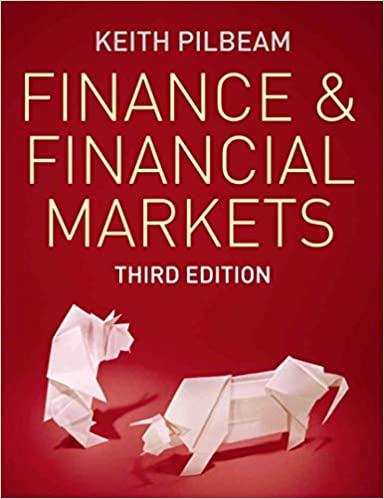Question
Seven years ago the Templeton Company issued 29-year bonds with a 11% annual coupon rate at their $1,000 par value. The bonds had a 5%
Seven years ago the Templeton Company issued 29-year bonds with a 11% annual coupon rate at their $1,000 par value. The bonds had a 5% call premium, with 5 years of call protection. Today Templeton called the bonds.
a. Compute the realized rate of return for an investor who purchased the bonds when they were issued and held them until they were called. Round your answer to two decimal places.
b. Why the investor should or should not be happy that Templeton called them.
I. Since the bonds have been called, interest rates must have risen sufficiently such that the YTC is greater than the YTM. If investors wish to reinvest their interest receipts, they can now do so at higher interest rates.
II. Since the bonds have been called, interest rates must have risen sufficiently such that the YTC is greater than the YTM. If investors wish to reinvest their interest receipts, they must do so at lower interest rates.
III. Since the bonds have been called, investors will receive a call premium and can declare a capital gain on their tax returns.
IV. Since the bonds have been called, investors will no longer need to consider reinvestment rate risk.
V. Since the bonds have been called, interest rates must have fallen sufficiently such that the YTC is less than the YTM. If investors wish to reinvest their interest receipts, they must do so at lower interest rates.

Step by Step Solution
There are 3 Steps involved in it
Step: 1

Get Instant Access to Expert-Tailored Solutions
See step-by-step solutions with expert insights and AI powered tools for academic success
Step: 2

Step: 3

Ace Your Homework with AI
Get the answers you need in no time with our AI-driven, step-by-step assistance
Get Started


